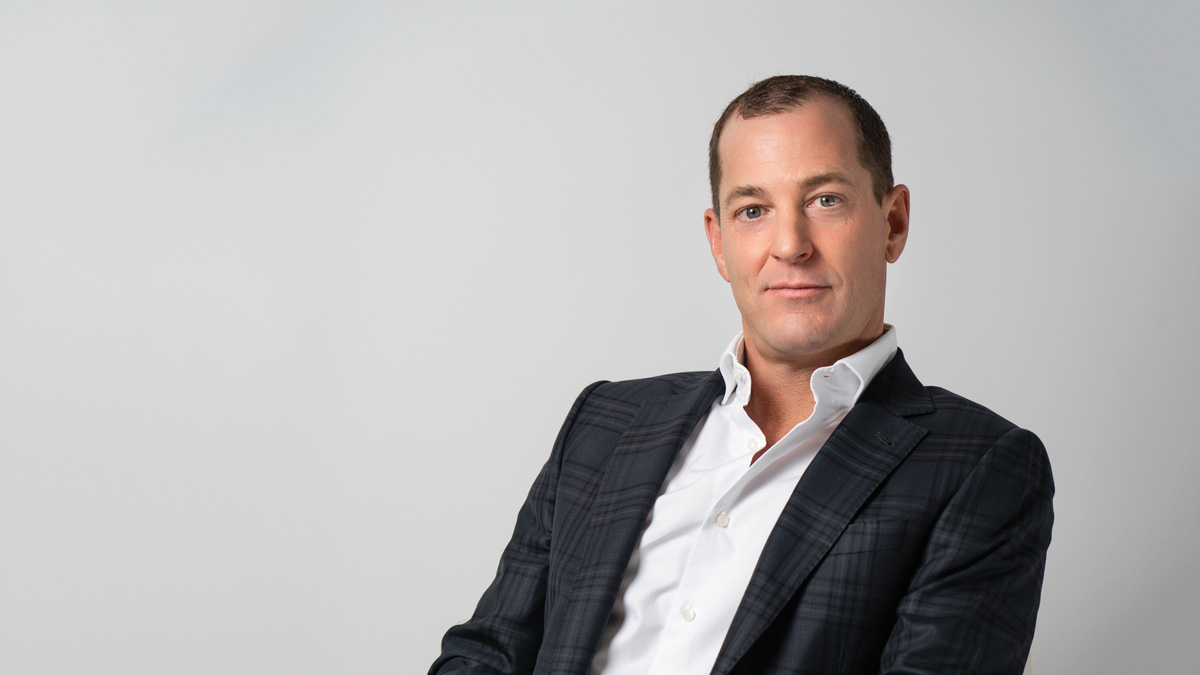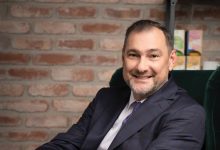Karl Leidenfrost, Managing Director at HABAU Romania: Today We Build for Tomorrow
Karl Leidenfrost, Managing Director at HABAU Romania, explains how the company takes advantage of a changing market and ensures it continues to develop its vision, strategy, and innovation alongside its services.
HABAU Romania, part of the Austrian Group HABAU, began its activity in Romania in 2000. The company offers a large range of professional engineering, procurement, construction, and commissioning (EPCC) services for gas and oil pipelines and all related installation.
Dear Mr. Leidenfrost, as you haven’t spoken to us recently, please remind us what is your scope of professional services in Romania and the region after more than 20 years in the energy sector.
Karl Leidenfrost: I’m happy to say that we have kept our initial field of activity, we remain in the pipeline and compressor station construction business, but under a new company name, HABAU SRL.
The rebranding makes it simpler and more efficient in terms of image and accessibility, though we remain the same in vision, quality, and experience, ‘today we build for tomorrow’ continues to be the sole definition of our work.
Additionally, we have developed business activities in the areas of civil construction, environmental construction, gas distribution, water and sewage distribution. It requires a lot of expertise and patience but I’m confident my team and I have found the best solutions and will be successful.
We are also targeting foreign geographical areas.
We have a long-lasting collaboration with Moldova where we completed last year an important local pipeline project connecting Ungheni to Chisinau as part of a larger interconnection pipeline and compressor station project that started in 2014, undercrossing Prut River in Iasi – Ungheni area.
A major pipeline construction project has been awarded to HABAU in Serbia and works there are about to start.
We are also present in Bulgaria, taking part in tenders, bidding for major projects.
Like everywhere, we work with local partners that are surely a key to success.
What does HABAU mean in figures and data (turnover, investment budget, no. of employees etc.) today?
Karl Leidenfrost: Currently we have approximately EUR 100 million in recently signed contracts and ongoing projects.
Our team counts 280 employees, but it is necessary to increase their number, in order to sustain and carry out the company’s projects solely by own resources.
We managed to achieve a steady turnover in the last years, with a spike in 2019, when it amounted to EUR 66 million and new challenges included hiring about 90 non-EU (Ukraine and Vietnam) workers to cope with the volume of contracted work.
Last year, with all its difficulties, we achieved a turnover of EUR 25 million and this year is already looking very promising, as important projects have been signed and works are in progress.
Our investment budget is around EUR 3 million, but as HABAU Group has grown in the last 20 years due to the purchase of several companies we always have the possibility to supplement it in case a potential target appears on the radar.
What have you been doing since our last interview (2016) in relation to your activity in the energy field and major projects? How are things going for HABAU in these challenging times?
Karl Leidenfrost: All the years of hard work, experience and determination for quality have placed our company as leader of a Romanian association in the most important pipeline construction project built on Romanian territory.
The first phase of the Romanian section, with a length of 478 km, of BRUA (Bulgaria, Romania, Hungary, and Austria) gas pipeline was successfully completed last year. The project was split in 3 segments, with 2 of these segments, approximately 320 km, built under the Lead of HABAU in partnership with the most important construction companies in our line of business from Romania.
The 140 km middle section of the pipeline has crossed high terrain – Vulcan Pass, at an altitude of 1621 m, and I’m grateful for this project’s challenging nature, as it thought us that with high quality machinery and experienced people nothing is too difficult to build.
The pipeline with TRANSGAZ SA as beneficiary is intended to reduce Europe’s dependence on Russian gas and increase security of gas supply for Romania and other EU Member States.
Jupa Natural Gas Compressor Station, part of the BRUA Phase 1 Project, a project on the list of Projects of Common Interest of the European Union and which was developed in the context of the need to diversify gas sources in EU countries, is another major HABAU project successfully completed in 2020, with INSPET SA as Leading Partner.
The Compressor Station that includes two Gas Compressor Units (one operational and one as back-up) is a technological installation interconnected to the following gas pipelines: DN 32″ SCG Bibesti – GCS Jupa, DN 32″ GCS Jupa – Hungary, DN 20″ West 1, DN 20″ West 2. The purpose of GCS Jupa – Caras Severin County is the compression of gas from the main pipelines to which it is connected. The station is bidirectional; it can compress gas in both directions.
HABAU has also taken part with local partners in TRANSGAZ development project in the North-East area of Romania, within which the compressor stations Gheraesti and Onesti, as well as the connecting pipeline, were built. The project is aimed at gas supply to the area and ensuring transmission capacity to the Republic of Moldova.
Although there have been some financial challenges, as 2021 began on the same pandemic background as the year before and the company had declined in turnover, we managed to retain our employees for all future projects.
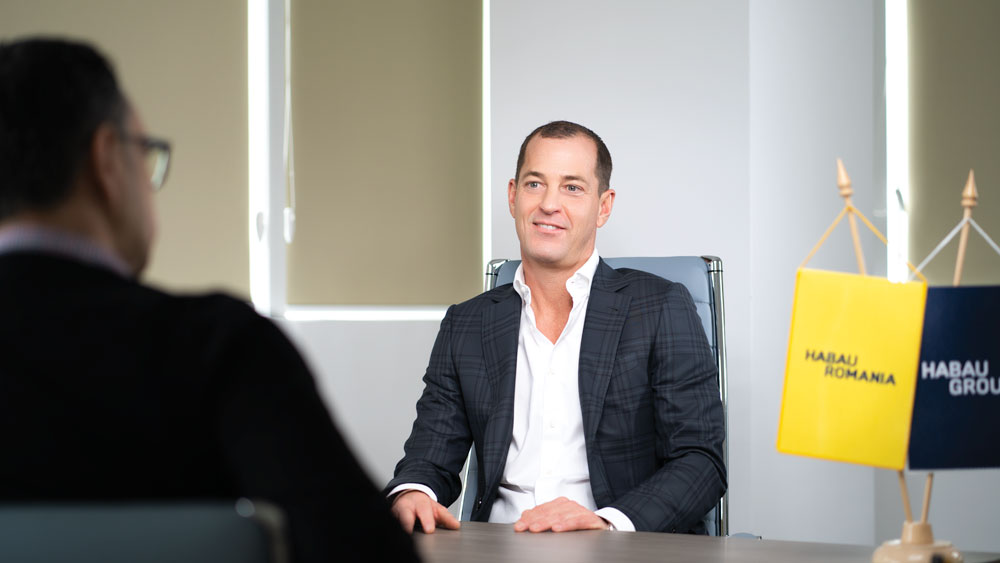
How do you see the global trends in the energy sector and their implication on finalizing projects on time and within the budget?
Karl Leidenfrost: We need to follow European/Worldwide trends – green energy, the Green Deal will dominate the years to come.
Still, we have to keep in mind that gas, as well as oil, will remain one of the necessary pillars for the global energy sector. My team and I are preparing and analysing new fields of activity, such as solar and wind power, hydrogen, hydropower, or biofuels.
We also have the HABAU Group’s experience and know what we can rely on for these new and interesting domains.
I am sure there will be significant European investments in Romania for these necessary alternatives.
Due to the targets and timeline of the European Union regarding the Green Deal I hope all the parties involved will have quite a lot of work in order to finalise the necessary major projects.
What are your current major projects and what obstacles/problems are you facing at work?
Karl Leidenfrost: At the moment, we are proudly building with a local partner (AMI SA) an 86 kilometres pipeline project in the north of Romania known by the local public as the “Sarasau – Sighetu Marmatiei – Borsa gas pipeline” and officially called the “Natural gas transmission pipeline in the direction of Sighetu Marmatiei – Viseu de Sus – Borsa”.
The route covers many administrative and local territories, having a major importance in Romanian gas transmission system and being intended to connect to the Campulung Moldovenesc – Vatra Dornei pipeline, in order to connect the natural gas transmission system from Maramures (North-West) with the one from Bucovina (North-East).
Our biggest challenge is yet to begin, as HABAU has recently signed the contract for a new major project outside the Romanian border.
I’m talking about the construction of the gas interconnector between Serbia and Bulgaria.
The route of the pipeline through Serbia will run from Nis to the state border near Dimitrovgrad. HABAU Romania, part of the HABAU Group family, is the leader of the association responsible for the implementation of the project on the Serbian territory.
The part of the gas interconnection in Serbia will be 109 km long, and the total length of the reverse flow gas pipeline through both countries is 170 km. The project is designed for a capacity of 1.8 billion cubic meters of gas per year.
It is another important step towards connecting Serbia and the EU. The project for the construction of the main gas pipeline MG10 Nis-Dimitrovgrad includes the installation of a gas pipeline of size DN700 with a pressure of 55 bar, as well as four metering and regulating stations with the related facilities.
HABAU has also signed a contract for a new project in Romania, “Natural gas supply in Socodor, Graniceri and Pilu areas, Arad County”, with a total of 18 months period for design and execution of the project.
This is a smart gas distribution system, meaning that it contains new technologies capable of providing real-time information on a part of or all the system and automated control and data to facilitate quick decisions both for a proactive approach to the safety of the pipelines and equipment and for the operational efficiency of the system.
The individual connections will be equipped with smart metering. They enable consumers to adjust their consumption, in order to take account of the prices charged. The works will be conducted by one of our most specialised partners, under close guidance and support from HABAU team.
With ROMGAZ as Beneficiary, we are close to starting works in Merii area, Ilfov County, where we are building 18 km of pipeline along other piping and civil constructions over a period of 8 months. This project consists of building a primary natural gas treatment plant by separating the liquid fraction. In the current economic situation, the project has for sure a strategic importance for Romania as it develops the production of the natural gas fields in Romania and increases the domestic production of natural gas.
There are some obstacles in developing these projects. Some caused due to the unfortunate recent events like the lack of materials and instability of prices on the world market, as well as the ongoing problem of qualified workforce.
We find it difficult to find and hire qualified people in Romania, as well as in all other countries where the HABAU Group is operating.
This problem affects all industries and has been raised several times. There is a major lack of qualified personal all over Europe and with the investments to come we really need to have an EU wide strategy on how to overcome this situation.
Unfortunately, the increase in prices for raw materials, energy, labour rates, accommodation and the daily costs in general affects our projects as well. We have very long timeframes from submitting a bid until we are awarded with a project. Offers for materials or equipment are currently valid only for a few days and change within unbelievable ranges.
The industry needs here flexibility from all governments and public or private clients in order to adjust prices to market situations, otherwise a lot of projects will be stopped and can’t be finalised, a lot of companies all over Europe will face serious problems.
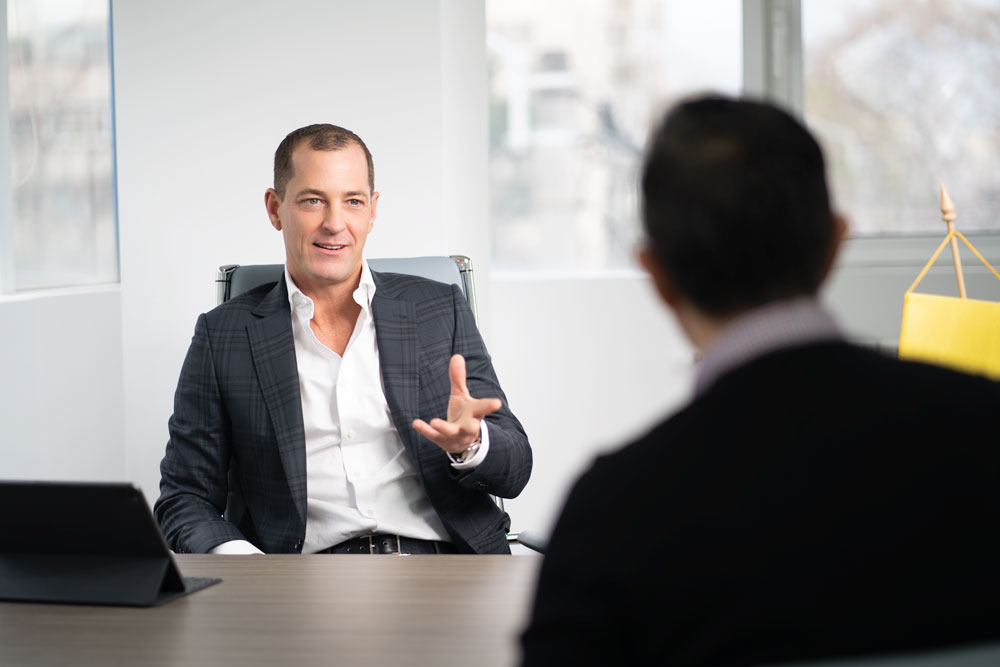
Everybody sees that the Russian-Ukrainian Conflict impacts supply chains and we can foresee some shortages of raw materials. How do you cope with this situation and what practical measures do you envisage? Who might help you address these problems?
Karl Leidenfrost: Next to the human tragedy that has all of us praying for peace, the Russian-Ukrainian conflict has had a major impact in our industry throughout the world as both countries are main producers of raw materials for the oil and gas industry, like steel and many others. The increase in oil prices since the beginning of the war has led to higher costs in all major aspects of life.
One way we are hoping to solve this crisis is acquiring materials from overseas, from countries like China and Korea, wherever it is possible.
We didn’t have experience with them until now, so it is quite challenging to establish new partnerships we can rely on under such a pressure and short timeframe.
Some of our projects are funded via the European Union, where we are also limited with sources outside Europe as possible suppliers. In these cases, we are trying to negotiate terms and conditions in existing contracts with our partners in order to keep the works going and meet the required deadlines.
Here we need the already mentioned support of our partners and clients – it is not about creating profits out of such a situation but keep companies working, securing workplaces in difficult times and finalising important projects in order to keep the European goals.
That’s why we need all stakeholders in a proactive dialogue; by the way, something I can see happening in Romania – all parties involved try to work on solutions like GEO 15/2021, which is a first important step.
Due to the European strategy of finding alternative gas supplies to Russia, the EU should also be one of the main parties to address these issues. I can imagine a European wide solution to overcome the current problems, as all the gas projects in progress in Europe have a sole purpose and that is increasing the independence from Russian gas.
The coronavirus outbreak has been hard for us all. How did HABAU perform in this period?
Karl Leidenfrost: If this coronavirus outbreak has proven us one thing, that would be one of the values we live by in the company: “safety comes first!”.
We were able to continue our activity without a major stop or break within our projects – actually we finished BRUA Project exactly during the coronavirus pandemic.
The company and the entire team have adopted all the necessary safety measures both in the office and on sites. Our HSSE team made frequent information campaigns via electronic means and also site visits where all the workers have been properly and completely informed about safe practices in pandemic times.
During these 2 years, we used teleworking with the same great results in work quality. Transportation of our teams in sites had been organised with an increased number of vehicles, thus maintaining social distance.
Since 2018 the company has contracted a private health care insurance that came in very handy during the Covid pandemic, allowing our employees to benefit from medical services or hospitalization for covid infection in specialized clinics throughout the country.
But it is still not over. We currently face again problems, especially in China – the lockdown of many cities and ports affect transportation all over the world, which leads again to uncertainty and risks.
What are HABAU’s plans for the upcoming years? Do you intend to expand your business in Romania and the region?
Karl Leidenfrost: HABAU is for sure growing both in Romania and outside its borders. Our internal workshop is undergoing changes, one of them being to build prefabricated steel and concrete parts for HABAU Group.
We are continuously developing our site teams and employees, introducing new technological methods like automatic welding at its newest level.
Meanwhile, we are looking for additional business niches and possible acquisition targets, having the financial support and relevant experience of our parent company, HABAU Hoch.
We are taking another important step towards the future by adopting the RISE with SAP package as the first client in Central and East Europe.
A decision, mainly driven by my colleague and CFO of HABAU Romania, Roxana Gureanu, which will allow us to benefit from an integrated and robust IT system, which will increase our process efficiency, reporting capacity and ensure legal compliance. Our company will benefit from better project and contract management capabilities, having a consolidated and viable source for obtaining the information we need.
Transactions can be made faster and more accurately, all stages of implementing a contract can be easily managed, including contractual changes, without affecting customer satisfaction.
The company will also have enhanced reporting, planning, and forecasting capabilities, as well as a clearer picture of employee work, through visibility into workload, productivity, and efficiency. This will also optimize our supply chain, from procurement to service delivery, which translates into even better customer service.
My team can enjoy a high degree of trust in contract management and service delivery, thanks to accurate reporting, detailed and timely analysis, as well as improved overall information exchange.
Along with other high-profile companies, HABAU is involved since 2019 in the education of new generations to form specialists in welding. With the help of the Ministry of Education and Research, together with Advantage Austria, we have enrolled in the dual STAR training program. Thus, economic operators become practical partners and potential employers of dual education graduates.
So, yes! We are expanding, looking for modern solutions and we’re definitely investing in our people.
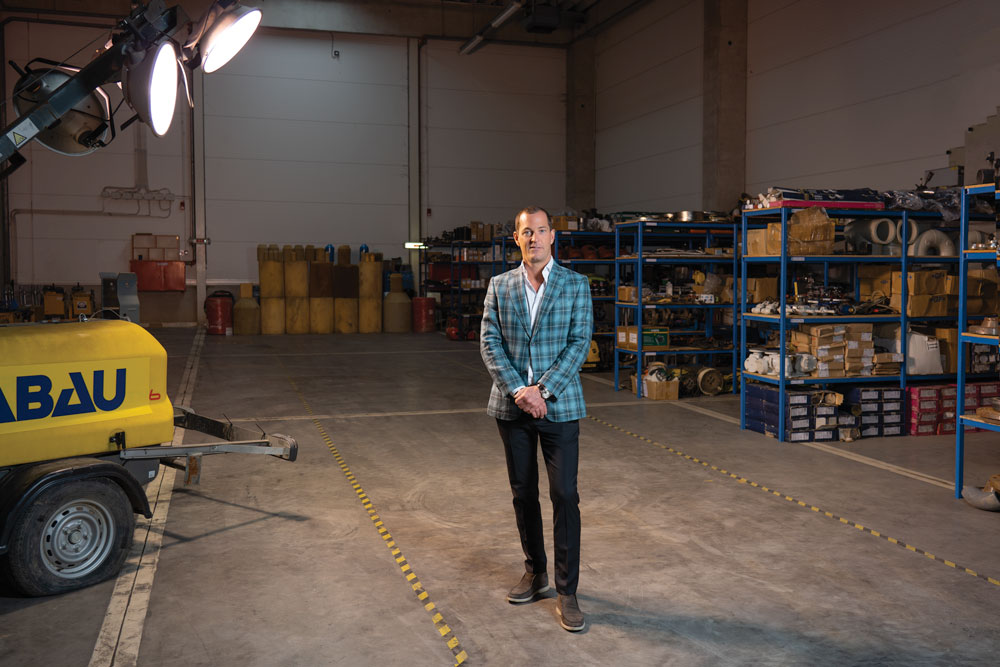
Companies have to evolve over time. How can you take advantage of a changing market and ensure HABAU continues to develop its vision, strategy, and innovation alongside its services?
Karl Leidenfrost: We always follow trends and innovations in the whole group.
We try to be innovative, to adopt modern solutions and invest in our employees. HABAU has an existence exceeding 100 years, so it is in our DNA to secure success even in changing or challenging markets.
The last years with all the events like Corona or the war have shown us that we need to be flexible and adaptable in our business by sticking to the principles we have lived by for so many years.
Even though the use of renewable sources is expected to grow faster than fossil fuels, the US Energy Information Administration (EIA) says coal, oil and natural gas will still account for 77% of our energy in 2040. From your viewpoint, what will the future look like for HABAU?
Karl Leidenfrost: We have been consistent in our work and very good at what we do so we stick to our field of activity, as gas has also been included in the Green Deal and will continue to play a major role over the course of years.
Europe will still be dependent on gas and a lot of investments need to be done regarding interconnection and gas storage facilities.
In parallel, we aim at green energy technologies and industry – we prepare to be reliable partners even for new customers in different fields of activity.
Additionally, I like to think we’re bringing a small contribution to reducing carbon dioxide emissions by replacing old machinery with more performant electrical ones and gradually changing our fleet with new and less polluting vehicles.
We’re keeping close in mind our desire to be successful on new territories and expand our vision. A spirit of innovation is within us, and we will stick to the Group statement: PERFORMANCE IN CONSTRUCTION – whatever we build


